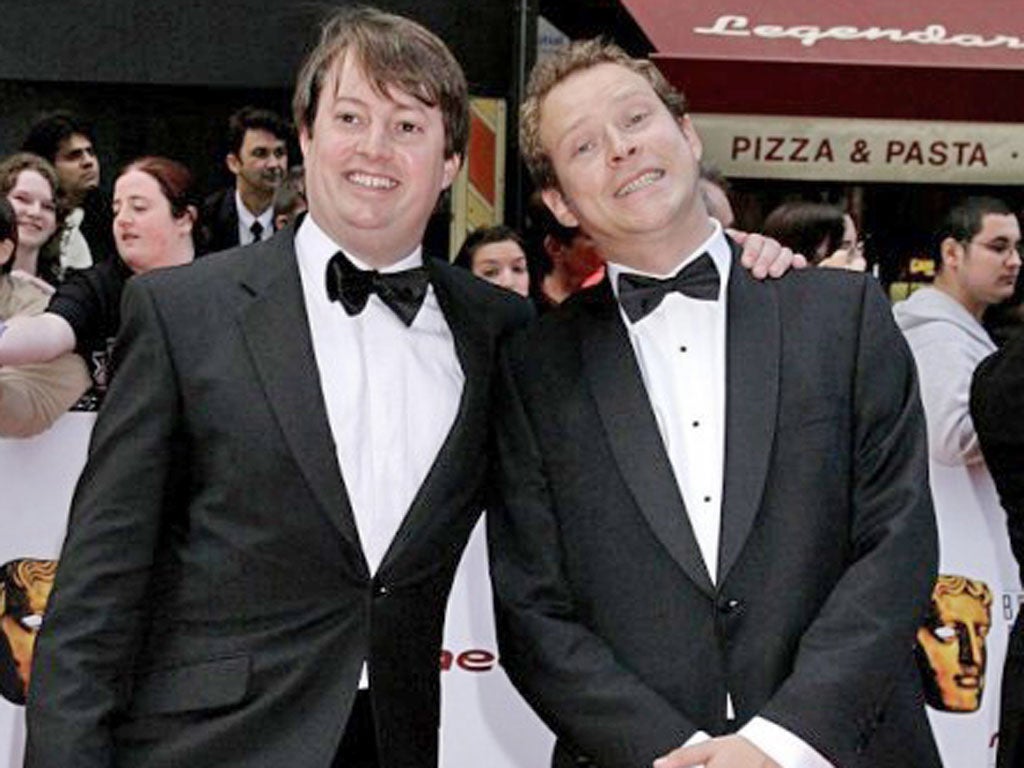Was our man in Uzbekistan the real inspiration for Beeb's new comedy Our Men?

Your support helps us to tell the story
From reproductive rights to climate change to Big Tech, The Independent is on the ground when the story is developing. Whether it's investigating the financials of Elon Musk's pro-Trump PAC or producing our latest documentary, 'The A Word', which shines a light on the American women fighting for reproductive rights, we know how important it is to parse out the facts from the messaging.
At such a critical moment in US history, we need reporters on the ground. Your donation allows us to keep sending journalists to speak to both sides of the story.
The Independent is trusted by Americans across the entire political spectrum. And unlike many other quality news outlets, we choose not to lock Americans out of our reporting and analysis with paywalls. We believe quality journalism should be available to everyone, paid for by those who can afford it.
Your support makes all the difference.Meet Keith Davis, the new British Ambassador of oil-rich Tazbekistan, who struggles to hold his marriage together amid a sea of corruption, hard liquor and flirtatious women.
He's the fictional star of Our Men, a new BBC comedy starring Peep Show's David Mitchell and Robert Webb.
But Craig Murray, the UK's former representative in Uzbekistan, whose tenure ended amid lurid headlines, has questioned whether his experiences have been used as source material for the comedy.
Produced by the team behind the award-winning BBC2 comedy Rev, the series stars Mitchell as a rising diplomatic star, awarded a posting which could make or break his career.
Arriving in the newly oil-rich former Soviet territory, Davis comes face-to-face with the dictatorial President Kairat, known as The Prez.
With the Foreign Office urging the Embassy to pick up lucrative business deals, Davis must convince Kairat to give the UK a major helicopter contract – while gently chiding him for his appalling human rights record. Negotiations are usually conducted over lethal vodka drinking sessions in the President's hunting yurt. The scenario is familiar to Murray, once a high-flyer with a taste for women and whisky, who was removed from his post by the Foreign Office in 2004, after exposing cases of torture and murder sanctioned by the US-funded regime of the real Uzbek President, Islam Karimov.
The fictional Tazbek embassy compound is a hotbed for lust and rivalry. Temptations include Natalie, the beautiful Uzbek head of communications, while the ambassador's long-suffering wife is left to make small talk with dull visiting EU bureaucrats. Murray's posting took an unexpected turn when he left his wife for a young Uzbek woman he met in a lap dancing club and moved her into the Embassy. He was accused of "hiring dolly birds" to work in the visa department, approving visas for local girls in exchange for sex and drinking on the job. However the disciplinary charges were dismissed and he was exonerated by a tribunal.
Murray published a memoir of his experiences, Murder in Samarkand, which Paramount at one point intended to turn into a feature film starring Steve Coogan. Murray told The Independent: "This certainly has a very familiar ring to it. The scenario has similarities to my book. There may be an infringement issue for Baby Cow (Coogan's production company) which owns the screen rights."
However Murray added: "I'm a believer in free speech and a great fan of David Mitchell, so I'm not too upset. There certainly were comedic moments in Uzbekistan but the issue s of torture and rendition were serious."
But comparisons between Murray's experiences and Our Men, which airs next year, are coincidental, according to Robert Webb, who plays the Embassy's deputy head of mission. He said: "It's sort of Yes, Prime Minister meets Spooks at a bad disco and Yes, Prime Minister is a bit sick on Spooks, but Spooks doesn't mind. It's like that."
Murray, 53, who married his Uzbek lap dancer, stood for Parliament on a human rights platform and is one of Julian Assange's most prominent supporters. He was criticised after questioning the "conduct" of one of two women behind the sexual assault allegations laid against the WikiLeaks founder. On Newsnight, Murray named one of the alleged victims, arguing that her details were already in the public domain. He was censured by the Swedish National Prosecutor's Office.
Join our commenting forum
Join thought-provoking conversations, follow other Independent readers and see their replies
Comments